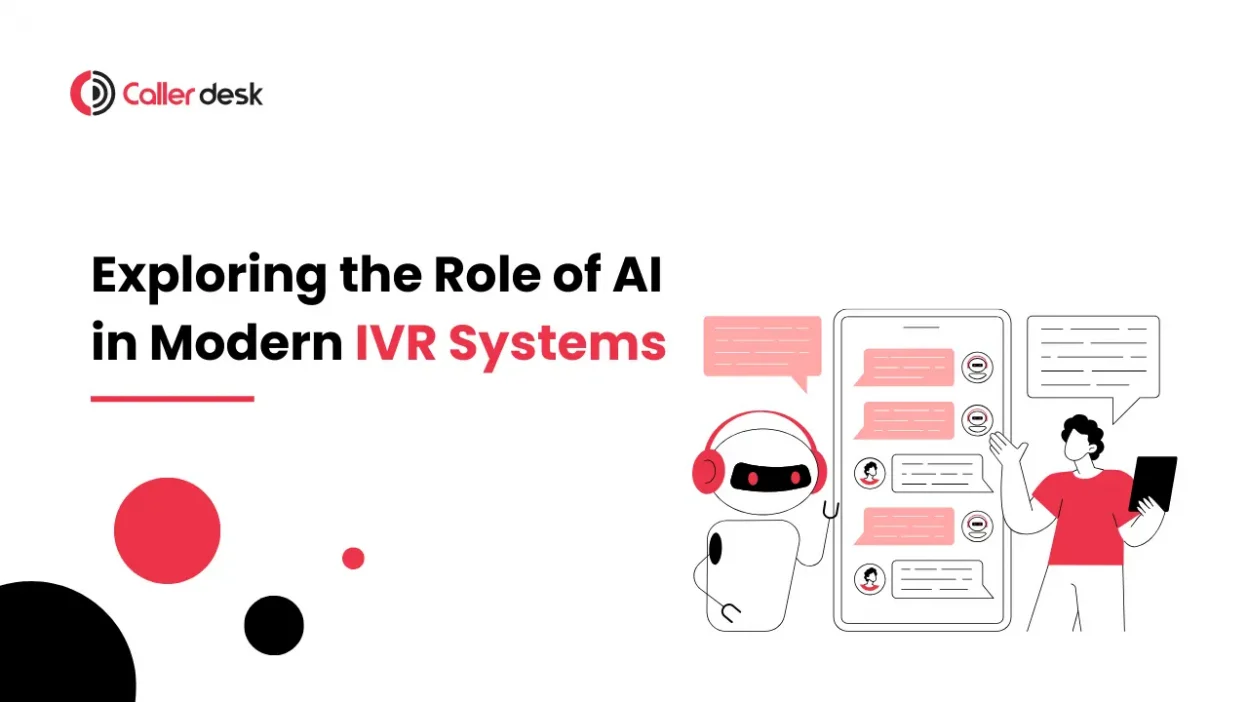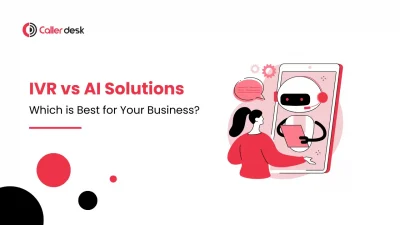Have you ever found yourself frustrated with automated phone systems? You’re not alone. Businesses today are keen to improve customer service and streamline operations. One significant advancement in this area is the integration of Artificial Intelligence (AI) with Interactive Voice Response (IVR) systems. Imagine an IVR that understands your needs and responds intelligently in real-time.
In this blog post, we’ll explore how AI is making IVR systems smarter, more efficient, and much easier to use, changing the way businesses and customers interact.
Understanding IVR Systems
An Interactive Voice Response (IVR) system is an automated telephony system that interacts with callers, gathers information, and routes calls to the appropriate recipient. Traditional IVR systems often relied on pre-recorded responses and basic decision trees, which could be frustrating for users due to their limited capabilities.
Initially, IVR systems were basic and often frustrated customers with limited options. The integration of AI has transformed them, enhancing functionality and greatly improving user satisfaction with more personalized and efficient interactions.
The Integration of AI in IVR Systems
1. Natural Language Processing (NLP)
AI-driven IVR systems use Natural Language Processing (NLP) to understand and interpret human speech more accurately. This allows users to interact with the system using natural language rather than navigating through a rigid menu of options.
2. Machine Learning (ML)
Machine Learning algorithms help IVR systems learn from past interactions and improve over time. This means they can predict what customers need and provide personalized responses, reducing call times and boosting efficiency.
3. Voice Recognition
AI-powered voice recognition technology allows IVR systems to identify and verify users by their voice. This adds extra security and convenience, making the customer experience better.
Benefits of AI in Modern IVR Systems
1. Improved Customer Experience
Let’s be honest—nobody likes dealing with outdated, robotic phone systems. AI-powered IVR systems change that. They actually understand what callers are asking for, thanks to advanced Natural Language Processing (NLP). Instead of endless menus and confusing options, customers get quick, clear answers. It’s like having a personal assistant who knows exactly what you need, boosting satisfaction and making every interaction smoother.
2. Cost Efficiency
AI takes care of repetitive tasks like checking account balances, order updates, or appointment scheduling. This means fewer human agents are needed for basic tasks, cutting operational costs. Plus, your team can focus on more complex issues that need a human touch. So, you save money and still provide top-notch service—win-win!
3. 24/7 Availability
AI-driven IVR systems work 24/7. Whether it’s 2 AM on a Sunday or a national holiday, your customers can always get the help they need. No more “Sorry, we’re closed” messages. This round-the-clock availability makes your business reliable and ensures customers stick around.
4. Enhanced Data Collection and Analysis
Here’s a secret: AI doesn’t just handle calls; it learns from them. Every customer interaction provides valuable data. AI analyzes this data to identify patterns, popular questions, and even customer pain points. You can use these insights to improve your services, predict customer needs, and offer solutions before they even ask. It’s like having a crystal ball for your business strategy.
5. Make Interactions Secure and Accurate
Security is a big deal, right? AI-powered IVR systems use advanced voice recognition to authenticate users. That means no more errors or security risks with manual verification. Plus, it adds an extra layer of trust for your customers.
Future Trends in AI and IVR Systems
1. Increased Personalization
Future IVR systems will use AI to remember what customers like and customize interactions based on their preferences.
2. Multilingual Support
Advances in AI will allow IVR systems to easily support many languages, making them accessible to customers worldwide.
3. Emotional Recognition
New AI technologies might let IVR systems recognize and respond to customer emotions, improving the quality of interactions and increasing customer satisfaction.
Conclusion–
AI is undeniably transforming modern IVR systems, making them more intelligent, efficient, and user-friendly. As businesses continue to adopt these advanced systems, we can expect even greater innovations and improvements in customer service and operational efficiency.





